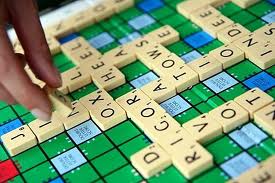 Learning, as a language based activity, is fundamentally and profoundly dependent on vocabulary knowledge. Learners must have access to the meanings of words that teachers, or their surrogates (e.g., other adults, books, films, etc.), use to guide them into contemplating known concepts in novel ways (i.e. to learn something new).
Learning, as a language based activity, is fundamentally and profoundly dependent on vocabulary knowledge. Learners must have access to the meanings of words that teachers, or their surrogates (e.g., other adults, books, films, etc.), use to guide them into contemplating known concepts in novel ways (i.e. to learn something new).
(Baker, Simmons, & Kame’enui, 1998)
Have you heard your professor saying words that are brand-new to your ears? Did you ask them the meaning of that word which caused you to have Epistaxis? Did you ever try to unlock difficulties in your vocabulary?
Many people nowadays studies in other countries because of cultural factors that affects our way of living. Part of our daily task is to talk, and one of the tools we use to create a conversational and interactive environment is the tool we call Language. Language is so broad, to be good in speaking we must know words that we can use to converse. Language is dynamic and so is culture. From time to time people create a word that is new to our ears. Vocabulary is one factor that we should enhance to be equipped and knowledgeable.
Vocabulary
A person’s vocabulary is the set of words within a language that are familiar to that person. A vocabulary usually develops with age, and serves as a functional and essential tool for communication and acquiring knowledge. Acquiring an extensive vocabulary is one of the largest challenges in learning a second language. It is commonly defined as “all the words known and used by a particular person”. Unfortunately, this definition does not take into account a range of issues involved in knowing a word. Broadly defined, vocabulary is knowledge of words and word meanings. However, vocabulary is more complex than this definition suggests. First, words come in two forms: oral and print. Oral vocabulary includes those words that we recognize and use in listening and speaking. Print vocabulary includes those words that we recognize and use in reading and writing. Second, word knowledge also comes in two forms, receptive and productive. Receptive vocabulary includes words that we recognize when we hear or see them. Productive vocabulary includes words that we use when we speak or write. Receptive vocabulary is typically larger than productive vocabulary, and may include many words to which we assign some meaning, even if we don’t know their full definitions and connotations – or ever use them ourselves as we speak and write (Kamil & Hiebert, in press).
Setting the context into the pedagogical manner, Vocabulary is taught because of the many compelling reasons for providing students with instruction to build vocabulary, none is more important than the contribution of vocabulary knowledge to reading comprehension. Indeed, one of the most enduring findings in reading research is the extent to which students’ vocabulary knowledge relates to their reading comprehension (e.g., Anderson & Freebody, 1981; Baumann, Kame‘enui, & Ash, 2003; Becker, 1977; Davis, 1942; Whipple, 1925). Most recently, the National Reading Panel (2000) concluded that comprehension development couldn’t be understood without a critical examination of the role played by vocabulary knowledge. Given that students’ success in school and beyond depends in great measure upon their ability to read with comprehension, there is an urgency to providing instruction that equips students with the skills and strategies necessary for lifelong vocabulary development.
Adding further complexity, in education, the word vocabulary is used with varying meanings. For example, for beginning reading teachers, the word might be synonymous with “sight vocabulary,” by which they mean a set of the most common words in English that young students need to be able to recognize quickly as they see them in print. However, for teachers of upper elementary and secondary school students, vocabulary usually means the “hard” words that students encounter in content area textbook and literature selections.
One of the most persistent findings in reading research is that the extent of students’ vocabulary knowledge relates strongly to their reading comprehension and overall academic success (see Baumann, Kame‘enui, & Ash, 2003; Becker, 1977; Davis, 1942; Whipple, 1925). This relationship seems logical; to get meaning from what they read, students need both a great many words in their vocabularies and the ability to use various strategies to establish the meanings of new words when they encounter them. Young students who don’t have large vocabularies or effective word-learning strategies often struggle to achieve comprehension. Their bad experiences with reading set in motion a cycle of frustration and failure that continues throughout their schooling (Hart & Risley, 2003; Snow, Barnes, Chandler, Goodman, & Hemphill, 2000; White, Graves, & Slater, 1990). Because these students don’t have sufficient word knowledge to understand what they read, they typically avoid reading. Because they don’t read very much, they don’t have the opportunity to see and learn very many new words. This sets in motion the well-known “Matthew Effects,” Stanovich’s (1986) application of Matthew, 25:29–“the rich get richer and the poor get poorer.” In terms of vocabulary development, good readers read more, become better readers, and learn more words; poor readers read less, become poorer readers, and learn fewer words. So the best way to enhance one’s vocabulary is to read and read and read.
Did you know…
Gobbledygook or gobbledegook (sometimes shortened to gobbledegoo) is an English term used to describe nonsensical language, sound that resembles language but has no meaning, or unintelligible encrypted text. It is also used to refer to official, professional or pretentious language. In this sense, gobbledygook is a hurdle of communication at best, a means of imposing power at worst.
The term was coined on March 30, 1944 by Maury Maverick, chairman of the United States Smaller War Plants Corporation. In a memo banning “gobbledygook language”, he wrote “anyone using the words activation or implementation will be shot”. Maverick later used the word in the New York Times Magazine on May 21, 1944 as part of a further complaint against the obscure language used by his colleagues. His inspiration, he said, was his neighbor of Dutch descent named Gobbel De Gook. He explained, “De Gook was always outside working on his tulips, talking aloud, incessantly, about something he apparently thought was important, but no one could understand a word he said, as we neighbors called it, he just spoke a bunch of Gobbel De Gook.”








